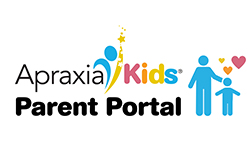Literacy problems are a common concern for families of children and adolescents with Childhood apraxia of speech. We know that children with speech and language difficulties, such as CAS, are at-risk for associated literacy problems. “Research indicates that 50-75% of children with CAS struggle with reading.” (childapraxiatreatment.org). While CAS is a motor-speech problem, children with CAS often have language deficits, which can make it hard for them to learn to read and write.
Toddlers and preschool-age children develop early communication skills (speaking and listening) in everyday experiences, which then prepares them to learn to read and write in school. For this reason, school-age children with speech and language deficits are more likely to have literacy problems than children without speech and language deficits. This does not mean that a child will develop literacy problems, but it is very possible. It is important for families, SLPs, and educators to pay close attention to language and literacy development and intervene if needed.
Identifying reading problems early is important for academic success. For our young children, this means assessing phonological awareness skills and letter-sound knowledge. Phonological awareness is the understanding that words are made up of sounds. Children learn to identify and manipulate sounds in words in phonological awareness practice. Think of it as “sound play” (i.e. rhyming, identifying initial and final sounds, blending sounds to make words, counting syllables). These are critical early skills for developing language and literacy as children grow. SLPs are trained to address phonological awareness skills in therapy.
Reading skills are imperative for academic success at the school-age level. If difficulties in reading are apparent, the child should be referred for a complete psychological evaluation. Parents and caregivers should communicate with their child’s teacher and SLP about reading concerns and progress at home. School-age students with CAS may have difficulty reading secondary to difficulties with phonological processing (phonemic/phonological awareness skills). Parents and educators may see difficulties with a child’s ability to rhyme, perform syllabication tasks, and accurately work with blends. This will affect the child’s ability to learn more complex language. Explicit instruction with these skills using a multi-sensory approach, such as Orton Gillingham methodology, may be beneficial, along with continued instruction with speech and language skills.
Support in the home environment is crucial. It is important for families to continue to engage in positive reading practice. Read books that are motivating and interesting for your child. Having the child read books at an independent level (95% and above) will aid in building reading fluency and comprehension. A team approach in school that includes the educators, SLP, and parents will be necessary for continued progress.
According to the American Speech-Language-Hearing Association (ASHA), literacy assessment and intervention are within the scope of practice for Speech Language Pathologists. SLPs have training in literacy disorders and can play an integral role in assessing and treating reading, writing, and spelling deficits. If you have concerns with your child’s literacy skills, it is never too late to seek help!
Re-write by Gretchen Myers, MSLP-CCC, Recognized by Apraxia Kids for Advanced Training and Expertise in Childhood Apraxia of Speech & John Myers, MSLP-CCC, Certified Dyslexia Educator (John & Gretchen are the owners of Center4Speech in Mars, PA)
*Original By Joy Stackhouse, Ph.D.
